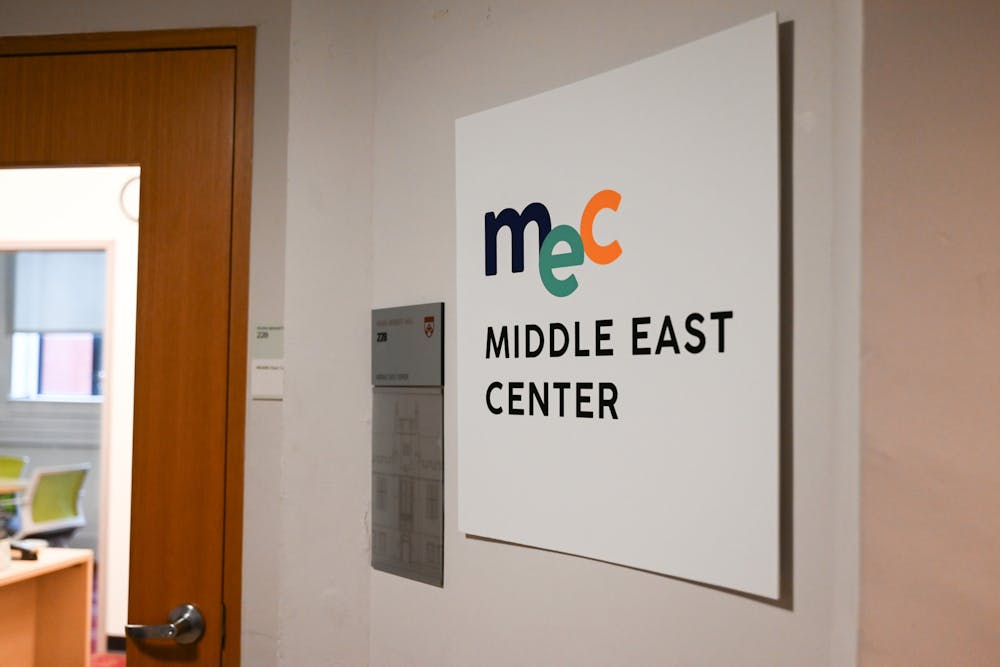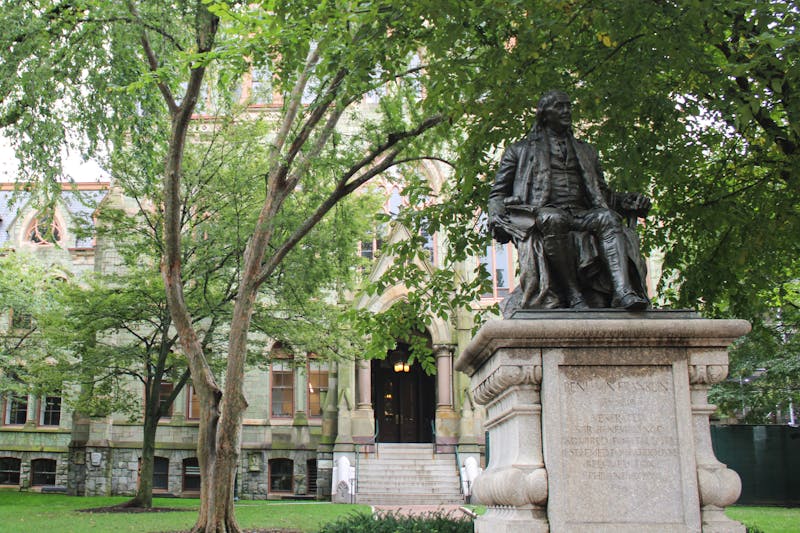
Columnist Mritika Senthil draws parallels between the recent resignation of Middle East Center director Harun Küçük to McCarthyism during the Cold War.
Credit: Chenyao LiuOn Nov. 28, Middle East Center director Harun Küçük submitted his resignation amidst the University’s alleged violations of academic freedom. Most notably, members of Penn’s progressive Jewish society Chavurah have been threatened with disciplinary action upon scheduling a screening of “Israelism,” a documentary that critically explores a “deepening generational divide over modern Jewish identity” amidst Israel’s “brutal” treatment of Palestinian citizens.
Küçük himself has not commented on the film specifically, and as a student, I have little idea of Penn’s administrative affairs. I only have respect for Küçük’s work in the Middle East Center and the field of Ottoman society at large. That said, the ban on “Israelism” has unveiled long-standing issues within upper management, particularly since the Israel-Gaza conflict became an overshadowing element of student life. And these issues are being overlooked by the larger Penn community in favor of focusing on the recent events surrounding the banned film.
On Nov. 29, the University Council’s Open Forum hosted speakers that simultaneously cited Penn’s administration and board for marginalizing “those suffering from what is happening in Gaza” and festering antisemitism from Penn’s faculty, students, and supporters.
Quite obviously, members of the University community don't address their discrimination experiences directly to the administration unless it's both a persistent problem and other levels of management fail to resolve it. There is a clear implication: Penn, from its highest echelons, neglects and thereby fosters these adverse conditions.
So of course, it’s not after these allegations first emerged, but rather after the withdrawal of numerous benefactors and even the launch of a federal investigation that measures against ethnic and religious discrimination were implemented. Only one of such efforts—the “Israelism” ban—came at the expense of due process and failure to answer the question, where do we draw the line between academia in the name of free speech and bigotry?
This question is only part of a larger pattern in American discourse and politics, particularly reflected in our tendency to employ Russia as a convenient scapegoat in addressing many socioeconomic issues. This thought has roots in McCarthyism, which came to define American political proceedings in the late 1940s and 1950s. It was the early Cold War era, marked by fears of Soviet espionage and communist infiltration in American society. As a general climate of fear and suspicion emerged, Senator Joseph McCarthy launched a campaign in which suspect, left-wing employees were blacklisted from their jobs without any concrete evidence. Corporations often undertook these initiatives without any due process.
And likewise, we are now at the brink of baselessly extinguishing our own for the sake of defense. Only we’re not threatened by a foreign entity but by our own ideologies.
Thus, most coverage of the “Israelism” controversy fails to address the root issues behind Küçük’s departure, instead formulating a cause-effect relationship between these incidents. And yet, no mainstream outlet is addressing why contentions on campus have actually brewed to this degree.
Currently, students in favor of Palestinian liberation have lauded Küçük for standing against the alleged filtering of anti-Israel criticism while others believe that the former director resigned for the wrong reasons. But as us students are further pitted against each other in this heavily publicized era of Penn’s history, we must remember that our university would not have been as politicized as it is now without us. The problems fueling Küçük’s resignation began when we began to see ideologies over the people behind them.
MRITIKA SENTHIL is a first year studying Management and Russian & East European Studies from Columbia, South Carolina. Her email is mritikas@upenn.edu.
The Daily Pennsylvanian is an independent, student-run newspaper. Please consider making a donation to support the coverage that shapes the University. Your generosity ensures a future of strong journalism at Penn.
Donate








